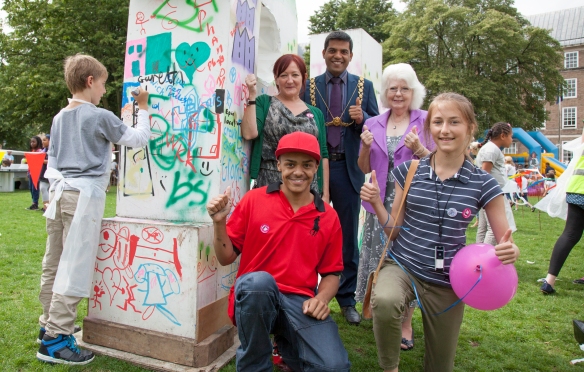 The Event Manager Blog recently posted about events being grown up play and to a certain extent I agree. We get to create activity and experiences that are all about enjoyment and often learning too, exploring our environment, trying new things, stimulating our brains…
The Event Manager Blog recently posted about events being grown up play and to a certain extent I agree. We get to create activity and experiences that are all about enjoyment and often learning too, exploring our environment, trying new things, stimulating our brains…
This week, we are managing Bristol Playday – a 3 hour event with attendance of over 3,000 children and families on College Green. This is an event that is definitely all about play in all its forms! We have circus, music, dance, Ping!, libraries, arts & crafts, space hopper racing, canoes, cardboard city, parkour, playbus, kite making, hula hooping… The event is being delivered on behalf of Bristol Youth Links, part of Bristol City Council, and so this event is also a manifestation of their play policy and practice.
Designing Playday is not just about putting on a heap of activity that is related to play in someway but rather is a considered plan working with providers and partners to create activity that engages all in play but also demonstrates for example the practical implementation of the risk benefit policy. This idea of risk benefit is that undertaking risky activities can be beneficial in terms of play and learning and that such activities are entirely valid on the basis that the risks are considered effectively. We know this from corporate team building activity where collective risk taking is a valuable learning experience in terms of team cohesion, decision making, personal challenge and skill development but it is rarely considered in this way in public sector/council contexts.
Playday could be an event that was ‘enforced fun’ and become play without any fun at all! But it really isn’t – it is a space where all are welcome and all can enjoy, where play is free in every sense, and where the formality of Council meets the chaos of play! We could all do with a bit more play in our lives so we can suspend our formality, our stress and all the grown up stuff to let ourselves be creative and feel that freedom. Bring on Playday!
Claire Eason Bassett, Managing Director, Mackerel Sky Events




